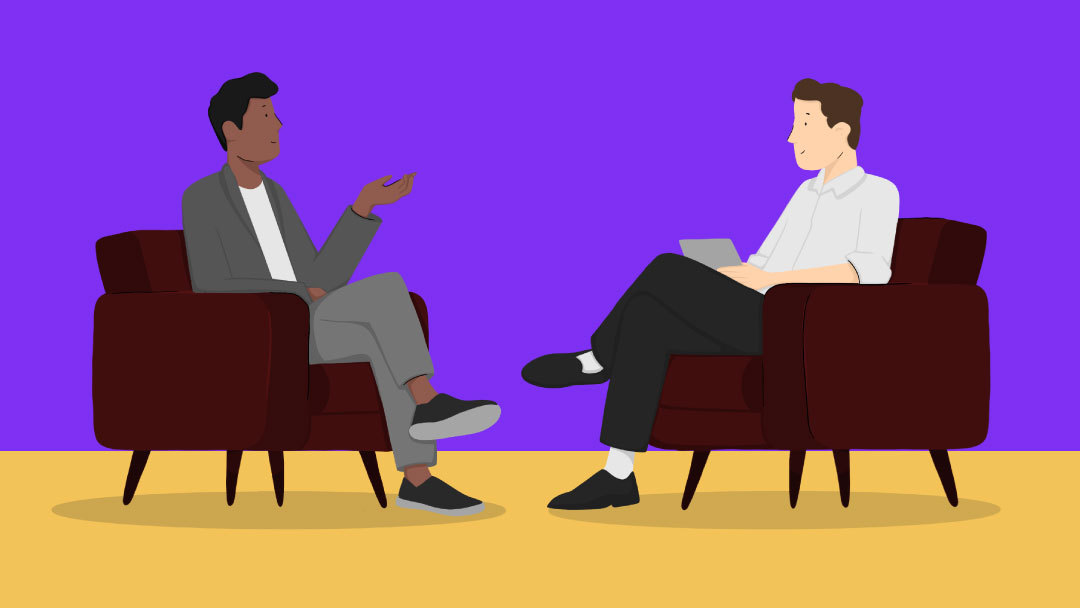Regardless of whether you are a first-time applicant or simply looking for a new role, the hiring process can be extremely daunting. Especially the interview. To help you along the way, we have listed some teacher interview tips and commonly asked questions.
Teacher Interview Tips – Preparation
Being prepared for your interview is extremely important, as it shows that you are reliable, willing and eager. Here are some simple preparation tips that can help:
- Research the role/school. Being knowledgeable of the business is a critical component that will make you stand out.
- Practice your interview with a friend or family member.
- Make sure you understand the job specifications.
Teacher Interview Tips – First Impressions
We all know the phrase, “you only get one chance at making a good impression”, because it has an element of truth to it. Being able to stand out from the crowd and creating a great first impression is extremely valuable, so here are some tips that could help:
- Dress professionally – looking the part will go a long way.
- Be punctual – ideally, you should arrive 10- to 15 minutes early.
- Have a positive mental attitude.
- Prepare some conventional queues ahead of time.
Teacher Interview Tips – Commonly Asked Questions
An interview for any job is an important opportunity for the employer to assess whether you’d be an excellent fit for the role – that also applies to teaching positions. Let’s take a look at some tips and commonly asked questions to prepare for your interview.
How to answer the dreaded “tell me about yourself” question
The individual conducting your interview will inevitably ask you a series of questions to better understand your experience, qualifications, and general interests. Since teachers interact with their students every day, showing that you are an engaging and outgoing personality is important. However, we all get a little flustered and nervous under pressure, so here is a great tip to remember. Think about the “past, present and future“.
- Past – Talk about any previous experience that influenced your career in education.
- Present – Talk about your current job role, your duties, and any notable accomplishments. Being proud of your current employer shows great enthusiasm.
- Future – Talk about what you are looking for in a future position and in a prospective employer – make sure you adjust your response to the position. For example, if the job advertisement said, “we are looking for someone interested in growth opportunities”, make it a priority to mention that you’re interested in developing your career, challenging yourself, and taking on more responsibilities.
What qualities do you have that would make you an excellent fit for the position?
A great way to answer this question is to outline what you define as “great qualities”.
Here is an example answer:
“Through my education and my previous job experience, I have come to learn that:
- Resilience
- Subject knowledge
- Pace
- Enthusiasm
- Empathy
- And the ability to hold the attention of a classroom.
Are the critical qualities of an effective teacher. I have learnt these qualities first-hand through my experience as a teaching assistant, and if I were to be successful, these are the qualities I would bring to the role.”
How would you evaluate the lessons you teach, and what would you do differently next time?
From reference materials to the requirements of each class, there are various obstacles you’ll be required to overcome as a teacher. Therefore, being able to outline how you’ll reflect and adapt your lessons shows the interviewer great thinking, preparation, and critical skills.
Here is an example answer:
“I would create an assessment plan for myself that would allow me to evaluate each lesson. For example, after each class, I would ask myself:
- Was the class engaged?
- Did my students put their hands up and answer questions?
- How confident did I feel about the lesson?
- Did I miss any key points?
- Do I need more resources?
- Do I need to adjust the PowerPoint?
- Did anything unexpected occur?
By doing this, I will be able to adapt, develop and grow as an educator.”
If I walked into your classroom during an outstanding lesson, what would I hear, and what would I see?
The best way to approach a question like this is to be realistic. Every educator has a different perception of what a good and bad class looks like, so describe what a great class looks like to you. For example, is it a classroom full of healthy debates about Macbeth? Is it lots of eager hands up in the air, ready to answer questions? Is it everyone writing and reading in silence? Everyone has a different teaching style (and expectations), so describe what a fantastic lesson looks like in your opinion.
Give an example where a pupil refused to cooperate and how you reacted?
For this type of question, it is best to provide examples where you have overcome the issue.
Here is an example answer:
“Through my education, I learnt that the best way to overcome a situation like this is through enthusiasm, encouragement and positivity. Every individual has different needs when it comes to education, so by taking the time to listen and by showing empathy, we can re-engage that pupil and move forward.“
So those are a few commonly asked questions, example answers, and teacher interview tips & tricks. We wish you the best of luck, and remember, once you have smashed your interview, Discounts for Teachers is here to connect you to the best deals and discounts.



No Comments